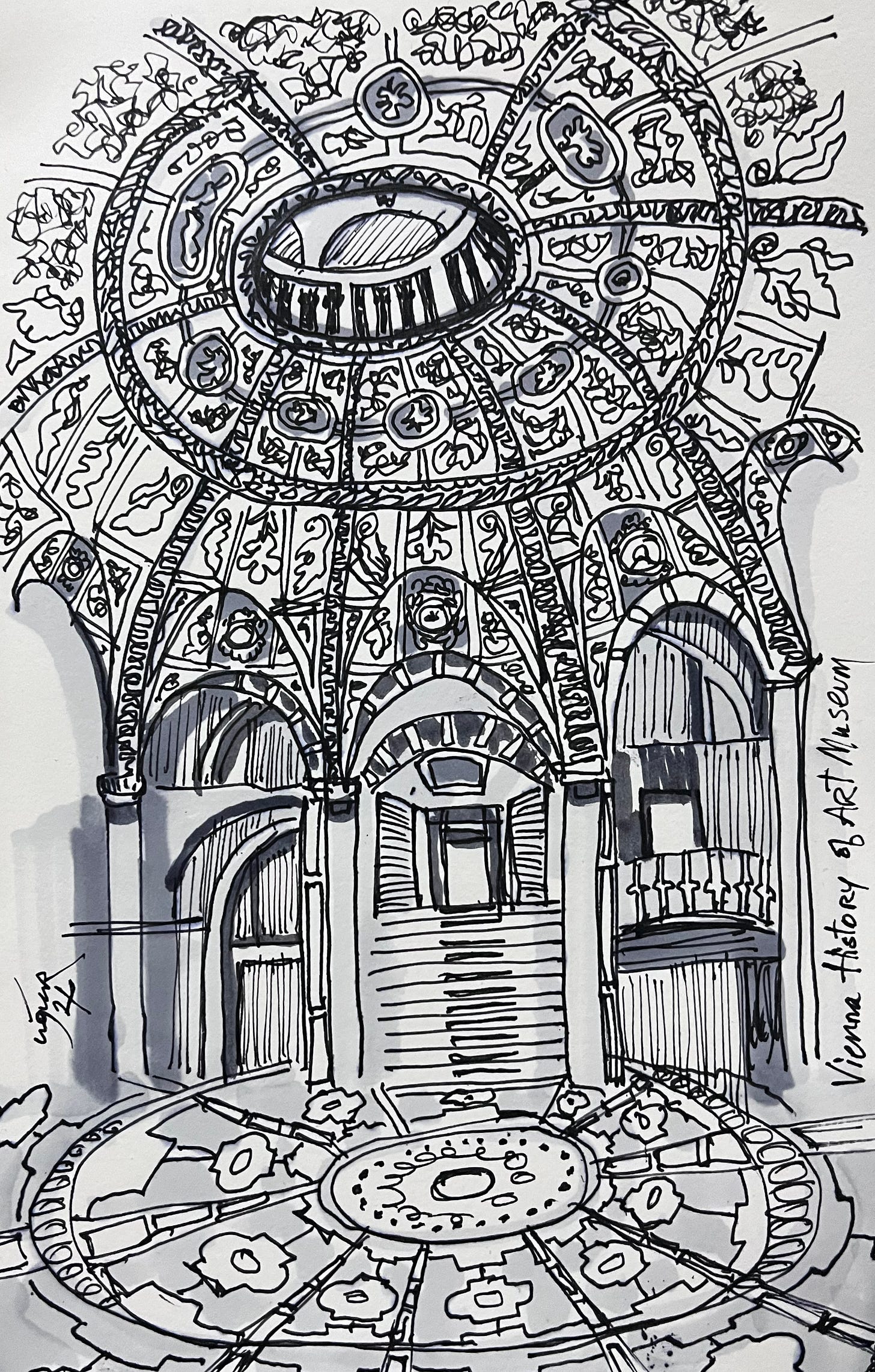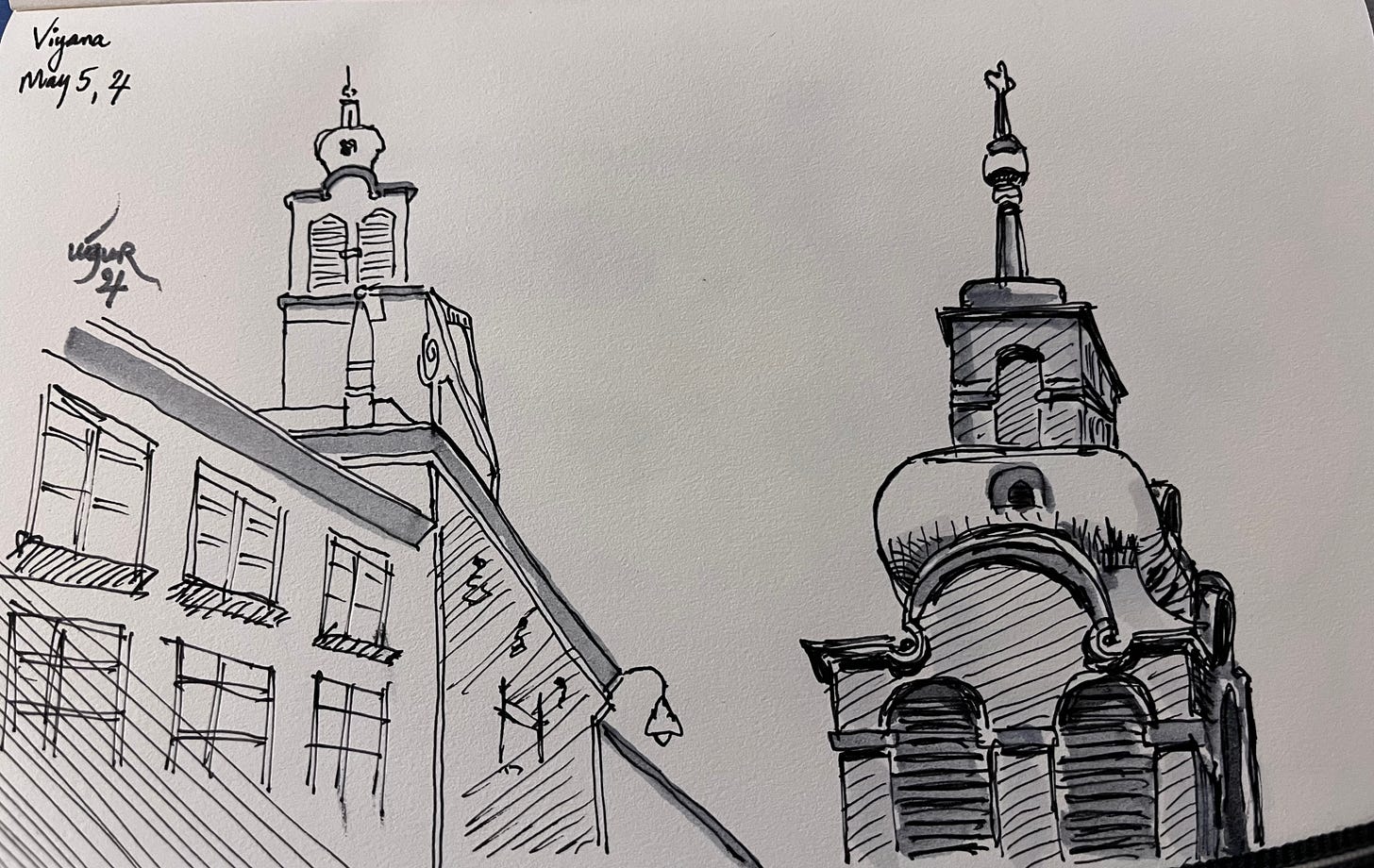There are cities when as soon as you arrive you notice there's something different about them.
I for example visited Montreal a few years back and the first thing I noticed right away was how tall the average Montrealer was.
Similarly, I visited Vienna this summer and couldn't help but notice how happy Viennese were.
I mean, I'm not talking about a hard-to-define kind of vibe. People were just laughing out loud as they carried on through their day.
When eating at a restaurant, strolling in Stephansplatz or Karlsplatz, at Belvedere, it was impossible to ignore occasional but not-so-rare explosions of laughter wafting in from any direction.
The first impression is the lasting impression, they say.
My first impression was and still is -- Viennese are happy people satisfied with their lot in life.
And when I say "Viennese" I don't only mean native Austrians. The Turkish kebab-house owner, the Sikh taxi driver, and the Indian souvenir peddler in Vienna looked and acted happy too.
Unintended consequences?
But that kind of pervading happiness has its unintended consequences as well.
Poor service
First, the quality of service in restaurants was less than optimal, shall we say.
It was as though the waiters and managers didn't care if you got what you ordered or had a memorable "user experience."
When I asked a waiter at Stephanplatz how exactly a certain German-sounding dish was prepared, he threw his head back with disdain and ordered me to examine the menu closer and make up my mind before calling him over again to place my "final answer." After which I left the restaurant immediately of course.
Does good service require a certain level of job-security anxiety and unhappiness on the part of the one who is providing it?
Does pervasive happiness lead to a devil-may-care attitude that translates to poor service?
When Viennese waiters lose their job due to customer complaints, do they easily find another job just like it if not better?
It seems that way.
Ignorance of history
Secondly, I was really surprised when I found out that the young Viennese are ignorant of some of the historic facts that I assumed they knew by heart.
We bought tickets for an organ concert at the magnificent St. Stephen's Cathedral.
I asked the young girl who was sitting at the ticket booth when the cathedral was built. I was sure she would snap back with the answer to such an easy question. She was born and raised in Vienna and selling tickets for the cathedral I was inquiring about.
"I have no idea," she said.
"How come?" I insisted.
"It was built before I was born" she said with a shrug. I left with my jaw on the floor.
(The cathedral, by the way, was built on-and-off between 1147 and 1433.)
Another episode: I was again jarred to realize that a college graduate and cheerful Viennese had no idea what happened in Prag (just 3 hours away by train) back in 1968. He has never heard of Alexander Dubcek. Again, I fought hard to suppress my dismay.
But…
Does being informed about history matter less for happy folks?
Is historic awareness of one's surroundings a task incumbent only upon the well educated?
Franz Kafka, Stefan Zweig, and Milan Kundera were sons of almost the same geography. They were as erudite as intellectuals of their caliber come. But were they happy? I don't think so.
Thus perhaps after all is said and done the young Viennese are winners since isn't happiness the ultimate goal in life?
One may say justice is important too. But isn't that because we believe justice will eventually lead to happiness?
Last words
I visited a happy city this summer and returned home with fewer questions about Vienna and more questions than I had expected about the nature of happiness.





